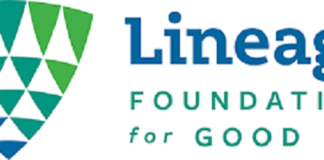
By Hugo Fuentes Diaz, Founder, The Owl Solutions
Did you know that 30-40% of food in the US is wasted every year? Food waste can occur at the supply chain level for several different reasons such as surplus inventory, new product launch failures, unpredictable consumer demand, packaging changes etc.
Most of the products wasted in the supply chain typically result in inventory write-offs or obsolescence, which is a product that a business can no longer sell. This ends up negatively impacting an organization’s finances and sustainability efforts.
To reduce the amount of financial, time, and environmental waste that expired food is creating, companies can focus on the Triple Bottom Line (TBL) – a framework that encourages organizations to consider the social, environmental, and economic impacts of their business.
TBL allows organizations to measure their business impact by focusing on 3P’s: people, profits, and planet. Reductions in inventory waste can improve the 3Ps, fostering a better outcome for each.
People
A major reason inventory expiration is so prominent in food companies today is the extensive use of old processes. For example, many companies use multiple supply chain IT systems, which end up creating siloed data.
These old processes typically result in reporting styles that involve extracting data from each separate system that is often exported into spreadsheets, vetted, and compiled into a report.
This type of manual reporting consumes a lot of productive work hours and leads to inefficiency for employees.
It is easier and more productive for inventory professionals to adjust their processes with improved technology that centralizes data sources and provides real-time analytics into everyday inventory levels. Not only will this help employees reduce associated write-offs risks, but it cuts the amount of time wasted on manual reporting, increases visibility into product expiration, and allows for more time to coordinate cost avoidance efforts.
Profits
The ability to spot potential risks in advance is a major benefit when it comes to business outcomes. Up to 3% of an organization’s annual revenue can be lost to inventory write-offs. That results in thousands and even millions of dollars wasted each year. Having the ability to quickly identify potential write-offs risks in advance allows more time to coordinate action items that will reduce write-offs. In turn, this helps companies save money that would have otherwise been wasted on write-offs. Inventory professionals can align their goals with the organization by reducing write-offs, which improves the business’s bottom line and shareholder equity.
Planet
Product waste has irreversible impacts on the environment and often ends up in landfills, which emit large amounts of methane – a potent greenhouse gas. Methane from food waste rotting in landfills is a 25x more powerful greenhouse gas than carbon dioxide. Reducing the amount of food wasted not only lowers the amount of methane in the atmosphere but also ensures that the resources used to produce those products such as water usage and energy consumption were not wasted.
Stakeholders
Lastly, reducing food waste at the supply chain level can offer several benefits to key stakeholders. According to a 2020 study by IBM and National Retail Federation, nearly 70% of consumers in the U.S. and Canada think it’s important that a brand is sustainable or eco-friendly. Some consumers are even willing to pay a premium for sustainable brands. Maintaining a sustainable image can help boost consumer loyalty and facilitate repeat purchase.
Investors are also paying attention to sustainability efforts through ESG reporting because it provides clarity on an organization’s operational performance and risk management. According to a PwC study of 325 investors, 79% said ESG risks are an important factor in investment decision-making, and 75% of said they thought it was “worth sacrificing short-term profitability to address ESG issues.” Focusing on more sustainable initiatives such as reducing food waste in the supply chain can help improve ESG reporting, which will be more favorable amongst key stakeholders.
By having daily visibility into your write-offs risks and creating more efficient processes, supply chain professionals can spot product expiration well in advance. This will allow them to identify any potential inventory risks and coordinate action items to prevent products from turning into write-offs. In turn, this will help organizations improve their Triple Bottom Line – positively impacting people, profits, the planet and key stakeholders.
 Hugo Fuentes Diaz is a passionate supply chain professional with a wealth of experience in driving performance and efficiency. Having held various roles in the supply chain for manufacturing companies across North and South America over the past 20 years, Hugo has developed a deep understanding of the challenges and opportunities inherent in the industry. Hugo founded The Owl Solutions – A supply chain performance platform that is committed to helping food manufacturers achieve their desired business outcomes while promoting sustainable practices for people, profits, and the planet.
Hugo Fuentes Diaz is a passionate supply chain professional with a wealth of experience in driving performance and efficiency. Having held various roles in the supply chain for manufacturing companies across North and South America over the past 20 years, Hugo has developed a deep understanding of the challenges and opportunities inherent in the industry. Hugo founded The Owl Solutions – A supply chain performance platform that is committed to helping food manufacturers achieve their desired business outcomes while promoting sustainable practices for people, profits, and the planet.








